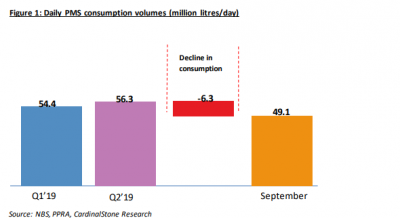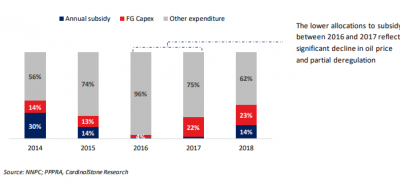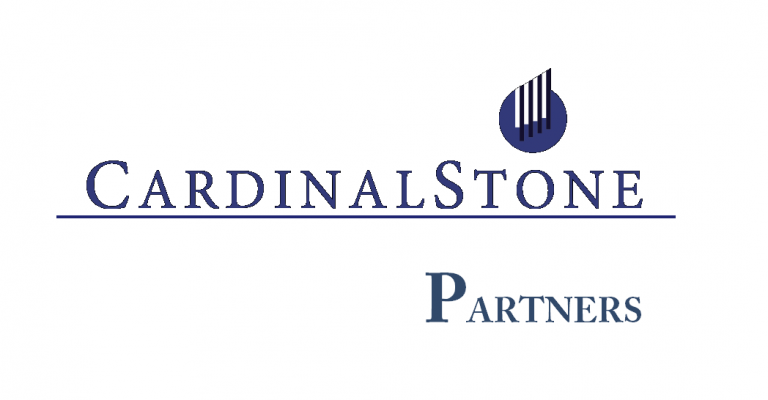On 20 August 2019, the Federal Government (FG) commenced the enforcement of partial closure of Nigeria’s land borders with Benin and Niger—to curtail persistent smuggling which threatened the administration’s drive to boost local production of staples and conserve foreign exchange reserves. Although smuggling occurs at most Nigerian land borders such as Idiroko, Ilaro, Jibia, and Maigatari, the illicit trade appears to be mainly perpetrated through the Seme border. Seven weeks on from the border closures, the deployment of security personnel has not only reduced illegal food imports but also limited unlawful exports of Premium Motor Spirit (PMS), according to PPPRA1 data. On the former, the potential effect largely points to an uptick incoming food inflation readings, with independent market researches suggesting significant increases in prices of commodities such as rice and frozen foods. Although this short-term impact of border closures is likely to negatively affect the cost of living, we see scope for slight subsidy savings for the FG if current efforts are sustained. Data from the PPPRA showed that daily PMS consumption slowed to 49.1 million litres/day in September from pre-border closure level of 56.3 million litres/day in Q2’19. While this moderation in PMS consumption may not be entirely due to the border closures, we believe that the enforcements may have had a hand in the lower consumption numbers. We also note that the reduction in consumption, if sustained, could lead to c.N13.5 billion and c.N162.1 billion in monthly and annual subsidy savings, respectively. Against this backdrop, we assess the sustainability of the current subsidy regime given the massive incentive for smuggling in Nigeria.

FG may have to erase the huge incentive to smuggle PMS out of the country.
PMS is trading at a significant discount of 59.7% in Nigeria (N145/litre), relative to the average in neighbouring West African countries (N360/litre). This huge discount, coupled with significantly porous border security and the opportunity to take advantage of existing free trade with border countries to make abnormal profits, had provided massive scope to illegally leverage petrol price arbitrage for many years. Since PMS became solely imported by the Nigerian National Petroleum Corporation (NNPC), smuggling aggravated the pressure on Nigeria’s finances via higher petrol importation and greater subsidy payments. To the point, Nigeria, to its detriment, may have inadvertently subsidized PMS supply to a few West African countries for more than 12 years. This inadvertent subsidy to a few West African countries may have added to under-recovery pressures emanating from higher global crude prices. Reflecting on the impact of the aforementioned factors, Nigeria’s annual allocation to PMS subsidy rose to c.14.0% of overall FG expenditure in 2018 (whereas FG CAPEX accounted for 23.0% of overall expenditure) from a low 1.0% in 2016. According to NNPC and PPPRA, over N10.0 trillion was spent on subsidy between 2006 and 2018 while c.$10.9 billion (N1.8 trillion) was drawn from the Excess Crude Account (ECA) between 2011 and 2014 for the same purpose.


Deregulation is likely the best ammunition to combat PMS smuggling
After extended periods of PMS subsidy, a few emerging and frontier economies have commenced the shift to deregulation to arrest fiscal strains. Although there were documented initial negative reactions to subsidy removals in Ecuador, Algeria, Egypt, and Kuwait, countries such as Namibia and Brazil recorded relatively minimal backlash. To curb violent reactions to fuel subsidy removals, a few countries adopted a gradual approach to deregulation and/or provided the poorest citizens with safety nets such as public transport (Mozambique) and gas (Brazil) vouchers as well as subsidized food distribution schemes (Namibia).
In Nigeria, the Major Oil Marketers Association of Nigeria (MOMAN) has also renewed calls for full deregulation of the downstream oil & gas sector. The current regulated pump price of PMS has remained fixed since 2016, whereas the cost of operations and investments have maintained an upward trajectory in the sector. Clearly, the price regulation mounts pressure on margins for PMS marketers and full deregulation is likely to be a huge reprieve. For the government, the elimination of subsidy payments would potentially reduce the fiscal expenditure burden on the authorities. Going by the H1’19 average daily PMS consumption (55.3 million litres/day) from the NBS, a total sum of c.N1.2 trillion (vs c.N1.1 trillion in 2018) is likely to be allocated to PMS subsidy in 2019E alone. A weighted average approach that factors in the decline in PMS consumption since the border closure in September would, however, imply that provision for subsidy could come in at a slightly lesser N1.1 trillion by the
end of the year. That said, the projected subsidy allocation using the lower weighted average approach is still likely to be higher than the combined budgetary allocations to education (N522.1 billion), agriculture (N164.9 billion), and health (N372.8 billion) contained in the 2019 budget document.
Evidently, a complete subsidy removal is a viable avenue to free up funds for the growth-inducing investments needed to stimulate the economy, while making illegal PMS smuggling significantly unattractive. Presently, there appears to a great incentive to smuggle and the c.2,200 petrol stations (NNPC estimates) located in Nigeria’s traditionally porous border towns and coastal frontiers despite their relatively small land area is suggestive of normalization of this illicit activity. In fact, we do not rule out the possibility that even the current border enforcements could eventually cave in as smugglers find a way around security apparatus in chase of huge arbitrage profits. Notably, after the contraction in average PMS consumption—linked to the border enforcements in September—month-to-date numbers already indicate a gradual creep up in PMS importation in early October (average of 50 million litres/day versus 45 million litres/day in September).

How high could pump price goes after another pro-market adjustment?
In a fully deregulated market, prices are primarily coxswained by global crude oil prices, currency changes, and other domestic operational costs (administrative and haulage costs) of different stakeholders across the downstream value chain. We recognize that the volatility of crude oil prices is majorly controlled by external forces. However, we downplay the upside risk to crude oil prices past current levels as the US plans to ramp up shale oil production and offset the impact of sustained OPEC+ group’s production cuts on prices. Assuming $60 per barrel oil price, an exchange rate of N360/$, and slight adjustments to other administrative charges in the previous PPPRA template to reflect some changes in the cost environment, we believe open market PMS price could rise to as high as N251.66/litre ($0.7/litre). This implies that the discount between Nigeria’s PMS price and the mean price in neigbouring West African economies could narrow to 26.1% from 57.7% (in dollar terms), with the additional transport and logistics costs associated with smuggling likely to become relatively difficult to cover as a result. We believe the disparity between our pro-market estimated open market price for PMS and the peer average of neigbouring countries reflect tax differentials and other country-specific charges.

Nigeria may resolve to approach deregulation cautiously
While complete deregulation appears to be a better approach to combat PMS smuggling, FG may resolve to follow a more gradual tactic due to the politically sensitive nature of the commodity. This could be an upward revision of the pump price that would not fully reflect market forces but achieve a reduction in FG’s subsidy burden. This strategy will be similar to FG’s drawn-out move to gradually increase electricity tariffs to levels that are fully reflective of energy acquisition costs. Furthermore, we believe a staggered augmentation of gasoline prices will be along the lines of past increases, which partially represented adjustments for increases in oil prices and other macro-economic factors. Indeed, some African countries have resorted to this gradual approach to subsidy removal. Egypt employed this approach, utilizing a systematic gradual removal of subsidies in its fuel subsidy reform initiative; this exercise was carried out in five tranches across a five-year period. The country deemed it necessary after the Arab Spring uprising left the economy at a
fragile state, owing to a sharp decline in tourism revenue and non-oil investments. That said, we note that even a gradual increase in domestic fuel prices is still likely to be met by a pushback by local trade unions and other support groups in Nigeria, going by past experiences and the lesson from Egypt. This may lead the government to the most likely and unsustainable option of inertia.
Analysts:
Khalil Woli
khalil.woli@cardinalstone.com
Michael Nwakalor
michael.nwakalor@cardinalstone.com
Philip Anegbe (Team Lead)
philip.anegbe@cardinalstone.com








